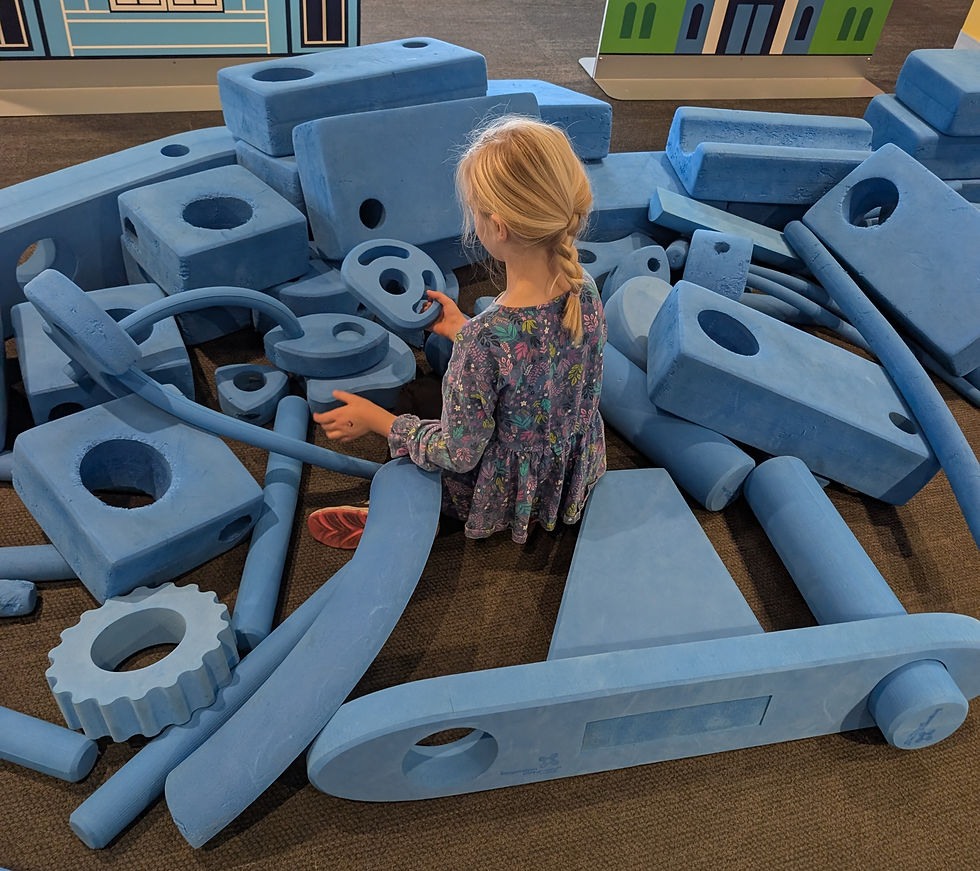5 Common Math Myths Debunked (and What’s Actually True for Kids and Adults)
- Math Happiness Project
- Jul 15, 2025
- 3 min read

5 Big Myths About Math That Might Be Holding You or Your Child Back
Many of us grew up with limiting beliefs about what it means to be “good at math.” Maybe you were told you weren’t a “math person.” Maybe you struggled with timed tests. Or maybe you feel unsure about how to help your child with today’s math.
The truth is, a lot of these limiting beliefs stem from math myths–old ideas that have stuck around for too long and caused more harm than good.
In this post, we’re debunking 5 common myths about math that affect how we feel and how we support kids as they learn. Because when we let go of outdated ideas, we make space for more confidence, curiosity, real understanding, and maybe even some math joy.
Math Myth 1: Some People Just Aren’t “Math People”
Truth: There is no such thing as a “non-math person.”
This myth runs deep. Maybe someone told you in school that you weren’t a “math person” or maybe you’ve heard others say it about themselves. Maybe you’ve even said it about yourself.
But here’s what you need to know: being good at math isn’t a personality trait or some special power you’re born with. It’s the result of experiences, support, and opportunities to make sense of ideas. That’s true for kids and adults.
Letting go of the “not a math person” myth helps us support our children more confidently, and maybe even reclaim math for ourselves.
Math Myth 2: Math Learning Only Happens in Classrooms
Truth: Math is all around us and learning happens everywhere.
Yes, school instruction is important (two former elementary teachers here, hello!). But the idea that math only “counts” when it’s happening at school? That’s a myth.
Kids (and adults!) build math understanding in everyday life. Learning math can happen while playing games, building, talking at dinner, noticing patterns, comparing quantities, or solving real-world problems.
Whether you're slicing up pie after dinner or measuring a wall together, know this: you're building math thinking in ways that matter.
Math Myth 3: You Have to Be Great at Math to Help Your Child
Truth: You don’t need all the answers, you just need to be curious.
You don’t need to remember long division or solve word problems in your head to be a math support.
What helps most? Being open to your child’s thinking. Asking questions. Encouraging their strategies. Modeling what it looks like to figure things out together.
And when you do that, you’re doing two powerful things: (1) You're helping your child do what mathematicians do AND (2) you’re showing them that math isn’t about having all the answers. It’s about asking questions and making sense of things.
Math Myth 4: Practicing Math at Home Means Sitting Down with a Workbook
Truth: Math learning can (and should!) be playful, practical, and part of everyday life.
If your child loves workbooks—go for it! But they’re far from the only option.
Talking about how many scoops it takes to fill a container, playing card games that build number sense, sorting laundry by size or shape… all of these all help kids build key math ideas in ways that feel natural and low-pressure.They also help your child see that math is more than just a subject in school.
Math support at home doesn’t have to feel like extra work. It can fit into the rhythm of your day.
Math Myth 5: Being Good at Math Means Being Fast
Truth: Real understanding takes time and speed isn’t the goal.
Maybe you’ve felt pressured to “just know” the answer. Or maybe your child is feeling rushed when practicing facts or solving problems.
But speed doesn’t equal skill. In fact, focusing on quick answers can backfire, especially if it gets in the way of deep thinking.
Taking time to understand, explain, and explore helps kids build lasting confidence. Give yourself and your child permission to go slow and celebrate thoughtful math thinking.
Debunking Math Myths for You and Your Child
When we challenge these myths, we don’t just change how our kids experience math, we change the narrative for ourselves, too.
You don’t have to be a “math person.” You don’t need to know all the answers. You just need to stay curious, keep learning, and create space for math to feel different in your home than it did in your past.
And remember, you don’t have to do this on your own. We’re here to help you with all things math from toddlers to sixth grade!




Comments